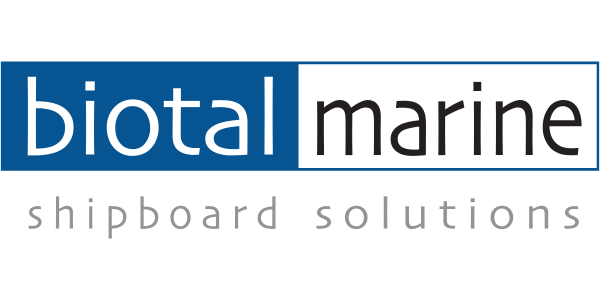Biotal Ecoclean 3000 is a highly effective water-dilutable, non-solvent engine room cleaner based on safe eco-benign® chemistry combined with high performing bacteria strains to aid oily water treatment and biodegradation of oily residues. It is designed specifically for general engine room cleaning that will not have a negative effect on oily water separator operation.
Available in:
20 Litre pails
Applications:
Oily separators
Hydrocarbon soils
Engine Rooms
Biotal Ecoclean 3000 is a highly effective water-dilutable non-solvent engine room cleaner, specially formulated to remove oils, grease and other hydrocarbon soiling from surfaces.
The surfactant mix used in Biotal Ecoclean 3000 is extremely effective at lifting and emulsifying oils and other greasy deposits so that the hydrocarbon contamination is removed, but immediately after cleaning, the Biotal Ecoclean 3000 surfactant mix is also quick breaking; which means that when the solution reaches the bilges or the oily waste tank, the emulsion is unstable and the oil separates out from the water. Tests have shown that the Biotal Ecoclean 3000 does not promote emulsification over a wide range of concentrations. The use of Biotal Ecoclean 3000 as the only engine room cleaner is a way of minimizing emulsion problems caused by use of inappropriate cleaning products.
The ‘cleaning and breaking’ technology:
The cleaning surfactant in Biotal Ecoclean 3000 has been formulated after screening many hundreds of formulae in order to obtain the best compromise between emulsifying properties at the in-use concentration for effective cleaning performance and quick breaking capability when diluted in the bilge for optimum Oily Water Separator (OWS) operation.
“Cleaning” and “breaking” quickly are critical capabilities, since surfactants that do not break quickly will cause emulsification in bilges. This will have a detrimental effect on the OWS as emulsified oils reaching it can cause serious problems with its operational efficiency, meaning oily water cannot be processed and must be retained for on shore disposal.
The product also contains proprietary bacteria strains to assist the oil and water separation process. These bacteria do not degrade gross amounts of oil, but they are able to degrade the surfactants that stabilise the emulsion, and also remove emulsified oil from the water phase, as the oil is in very mall droplets making it highly available for the biodegradation process.
Advantages
Remove oils, grease and other hydrocarbon soiling from surfaces
‘Clean and break’ technology means product is highly bilge friendly
Economic benefit by helping OWS to function well, thereby reducing volume of oily
waste requiring disposal
Does not interfere with operation of oily water monitors
Directions for use
General use:
Mix 1 part Ecoclean 3000 with 15 parts water in manual sprayer
Spray required areas
Allow to stand for approximately 5-15 minutes, scrub or wipe if deposits are stubborn
Rinse and allow waste to run off to bilges
Small quantities can also be used at a higher concentration for very difficult to remove materials
In pressure washers:
Set pressure washer at 20:1 ratio
Clean required areas
Allow liquid to run off into drains or the bilge
For cleaning oily water separators (OWS):
Secure discharge valves of OWS
Work out or consult manual to find volume of separator ,add 1/15th to 1/20th of the total volume of Ecoclean 3000 to the OWS
Keep in system for approx 24 hours whilst recirculating, then allow to stand for a further 24 hours
Transfer as normal through oil content monitor
Note: Overdosing or using higher than recommended concentrations can have a detrimental effect on the bilges
Regulatory environment
The most important regulations for preventing pollution by oil from ships are contained in Annex I of the International Convention for the Prevention of Pollution from Ships (MARPOL), 1973, as modified by the Protocol of 1978. Discharge of oil or oily mixtures from ship’s machinery spaces, from any vessel, is prohibited unless the vessel is underway, the mixture has been treated by an approved oily water separator, and the oil content is below 15ppm. The authorities have shown a very strong commitment to detection of even the most minor violations of MARPOL Annex I. In addition to large fines amounting to literally millions of dollars, both company management and seafarers can be liable to criminal prosecution and imprisonment for any deliberate violation of Annex I.



